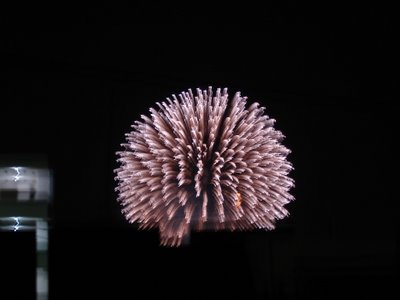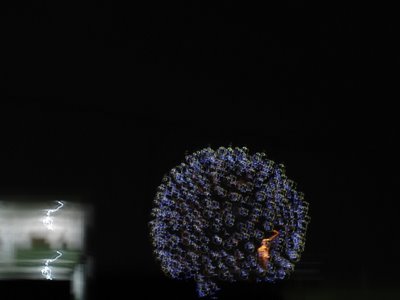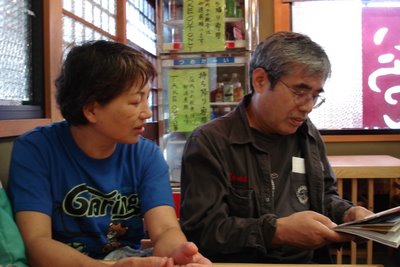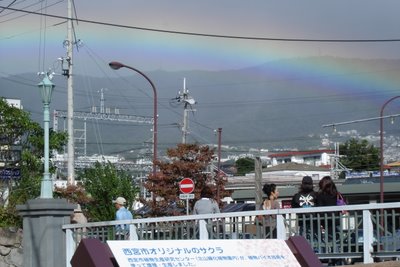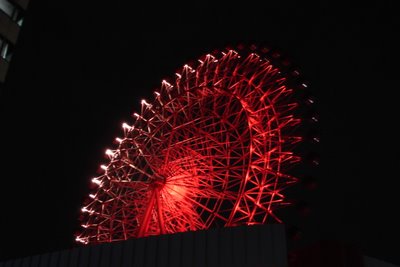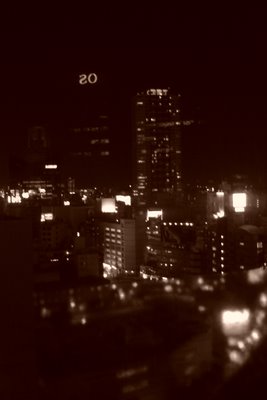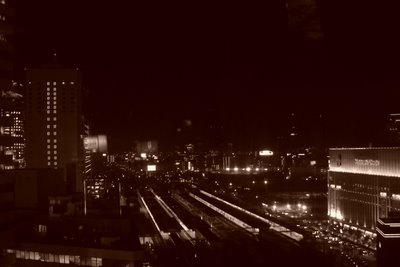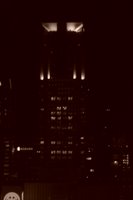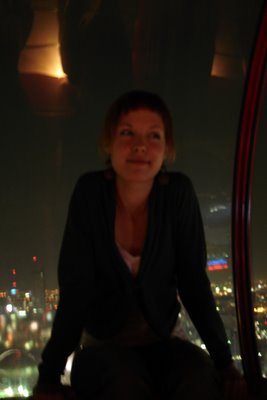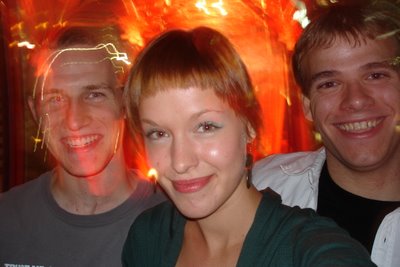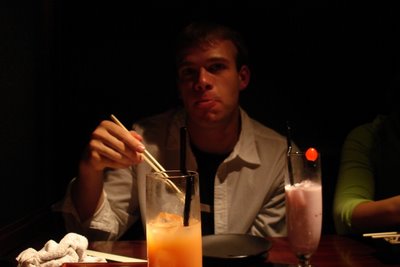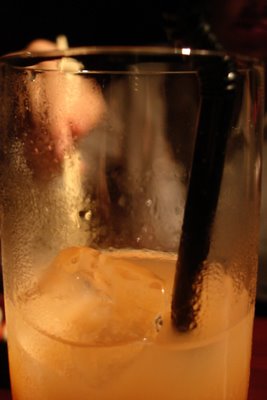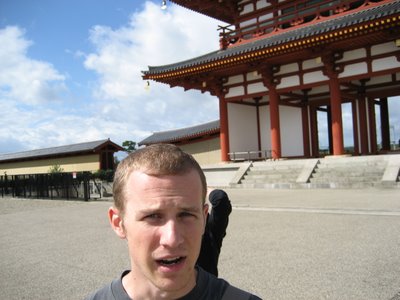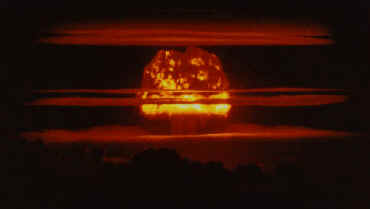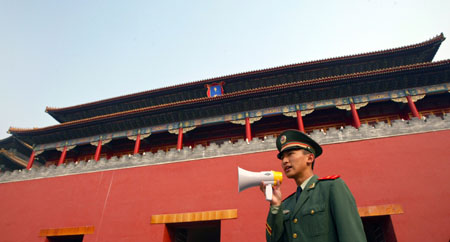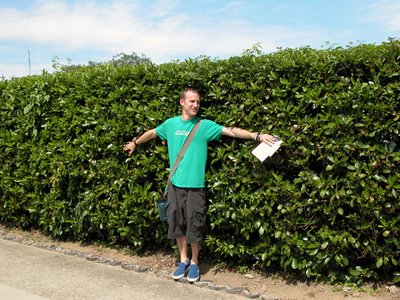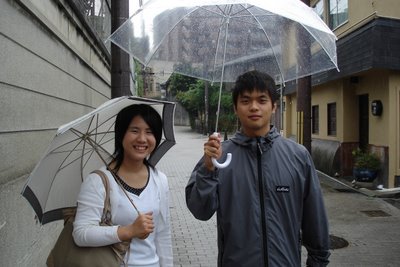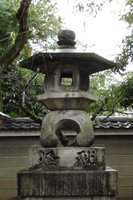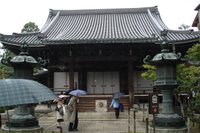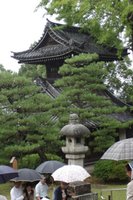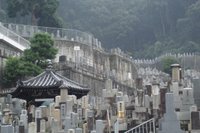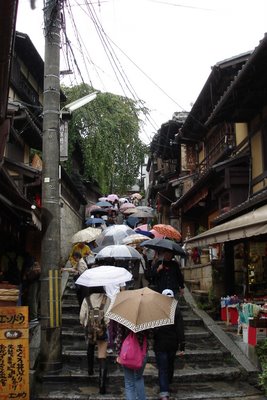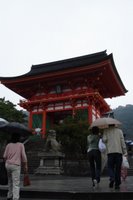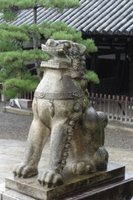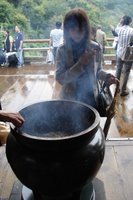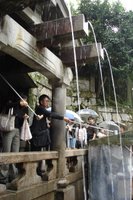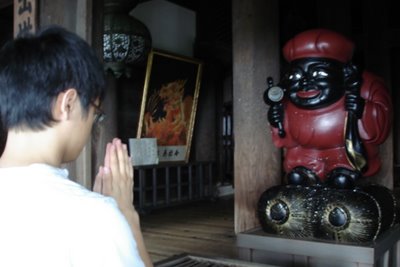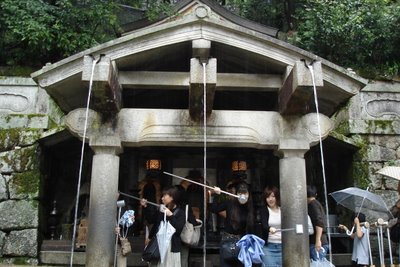Today is a day for general musings. It's rainy and miserable and I have these photos from my weekend trip to Nara but I don't think I'm going to get around to posting them for a while. There's too much stuff going on in the world right now, and I am spending way too much time staring at a monitor as is. I'm going to logoff, I think, maybe do some homework, maybe go to the gym. Maybe I'll put up those pictures tomorrow.
A guy I know is in UgandaLet’s start on a positive note. Sort of. Here’s a little tidbit from a former Ubyssey-er. John Woodward has an article on CBC.ca today that documents the
energy crises in Uganda that began four years ago.
North Korea still on the tableGetting back to Korea, I know I tried to point out yesterday how crazy Kim Jong-il is, but then today I ran across this little tidbit from an old CBC.ca biography that I just had to quote.
According to state officials, he was born in February 1942 at his father's guerrilla base on Mount Paektu, North Korea's highest mountain. "At the time of his birth there were flashes of lightning and thunder, the iceberg in the pond on Mount Paektu emitted a mysterious sound as it broke, and bright double rainbows rose up," the official lines read.
[…]
In 1964 he graduated from the Kim Sung Il University where legend has it he wrote 1,500 books, all of which are stored in the state's library. It is also said that he wrote six operas, all of which are better then any in the history of music, and designed the Juche Tower, a 150-metre tower that commemorates his father. (Source)
On the international scene,
China, Russia and the US have all publicly ruled out an armed response, while talks on sanctions and blockades remain stalled. While US Ambassador to the UN John Bolton continues to push the six-party talks, Japan, the current president of the security council,
continues to push unilateral sanctions, but says it will not take part in cargo inspections, which are considered an act of war and are therefore banned under Article 9 of the constitution.
China is still a horrible place to liveEven putting aside talk of coal mines and “death-vans,” Chinese ex-pat Yang Dazhi has
a chilling story of persecution in Communist China. As much laud and honour as China may be getting these days for its transformation into the latest Asian miracle economy, it’s difficult to see what makes it that different from
arms-dealing "terrorist regimes" like North Korea, or fascist, anti-Semitic Iran.
Not that we should be that hard on them, really. Among other things, we, the collective plutocrats of the West, have built our fortune largely on the blood and sweat of the lower-class that came before us. The same thing can be said about environmental pollution, or, say, nuclear weapons. The tricky part is, that in all the talk of China being a nation of socialists, or at worst dirty communists, it more closely resembles a fascist dictatorship like Nazi Germany,
right down to the nitty-gritty of the internment camps. It’s gotten so bad that
even the US Congress is beginning to take note.
David Kilgour, a former Canadian cabinet minister, was among those who testified. "The government of China and its hospitals, detention centers and other agencies in numerous parts of the country, has over the past half decade put to death a large, but unknown number of Falun gong prisoners of conscience,” he said. “Most of the victims were convicted of nothing. They were murdered by medical professions for their vital organs. These organs were, virtually, simultaneously seized for sale at high prices, often to foreigners."
It’s so easy to be a fascist state these days, what with ideas of “cultural differences” and “moral relativism” sprouting up in all the right places. But
this guy can’t get away with it anymore. Neither can
these guys. Meanwhile, rubes like Jack Layton
continue to press for Canadian withdrawal from crisis points like Afghanistan. Whatever happened to Human Rights and anti-fascism?
This will make you laugh.
"MR LAYTON: CANADA MUST CHANGE MISSION IN WESTERN EUROPE [1944]" Labels: America, Canada, China, DPRK, politics
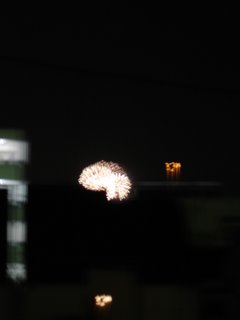 There were fireworks last night. I don't really know why, and neither does my homestay brother Kenta. Have I mentioned Kenta? He's a wonderful guy, very Canadian in a lot of ways – he spends a lot of time swearing in English though. I guess that's a natural tendency for somebody learning a new language.
There were fireworks last night. I don't really know why, and neither does my homestay brother Kenta. Have I mentioned Kenta? He's a wonderful guy, very Canadian in a lot of ways – he spends a lot of time swearing in English though. I guess that's a natural tendency for somebody learning a new language.